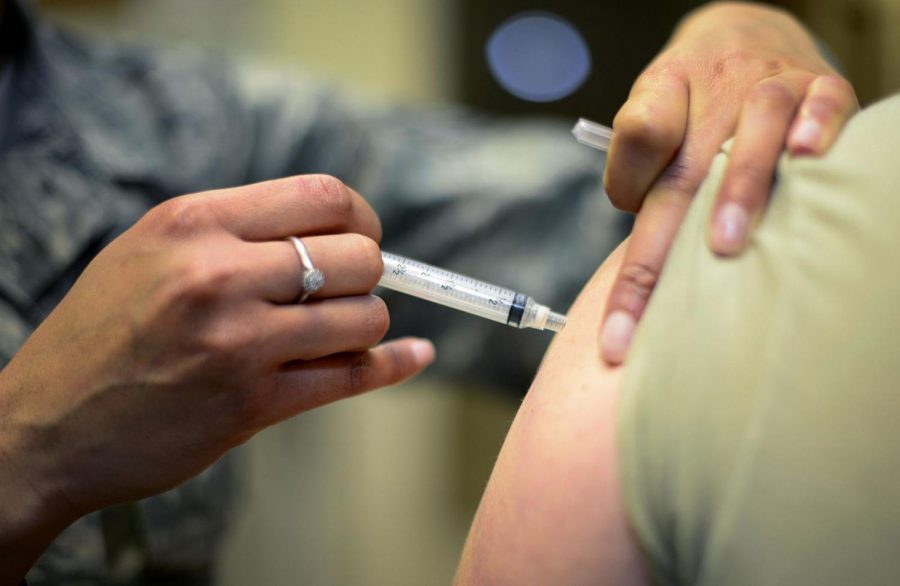This past week, a confirmed case of mumps was reported at Marquette. Although the student is no longer contagious, it raises questions about the immunization process for students, faculty and staff at the university. Students are required to report vaccines such as tetanus and two doses of mumps, measles, rubella and there are other immunizations like polio that are recommended, but not required.
On the other hand, faculty and staff are not required to report their immunization records. The university should hold faculty and staff to the same standard as students, and Marquette should also re-examine which immunizations it requires of all.
The specific vaccinations required by Marquette are two doses of MMR, two doses of varicella, tetanus/diphtheria/pertussis and a tuberculosis screening questionnaire. When compared to other universities, in some cases, Marquette only recommends vaccines that are required at other institutions.
For example, at both DePaul University and Xavier University, the meningococcal vaccination is required for all admitted students. In addition to that, Xavier also requires Hepatitis B vaccines. At the University of Wisconsin-Madison, not only are meningococcal and Hepatitis B vaccinations required, but also the HPV vaccination.
The meningococcal and HPV vaccinations are also extremely important for this age demographic. These diseases are often transmitted through romantic and sexual relations with another individual. Students gain independence in college, making it more likely that they might engage in behavior that could lead to one of these illnesses.
The fact that other universities recognize these vaccines as necessary should encourage Marquette to take every precaution necessary to keep students in the best health. Students cannot afford to miss class because of contracted illnesses that are preventable from simple vaccines. Not only do students need to be responsible for their own health, but they should not put the wellness of their roommates, professors or peers in danger.
Colleges can be a breeding ground for infection. Students live in close quarters, making it easy for diseases to spread from person to person. An updated list of required immunizations would show Marquette’s commitment to health and safety for students. In addition, Marquette could spread more information about the many vaccines offered at the Medical Clinic, including vaccines for influenza and HPV.
It is also essential that Marquette require faculty and staff to have the same immunizations as students. Currently, only some departments have their own policies regarding immunization records, Keli Wollmer, interim director of the medical clinic, said in an email. Specifically noted were MUPD and Facilities Planning and Management, which require employees to disclose Hepatitis B and TB skin test records.
Students come in contact with employees of the university every day, and if they are not vaccinated, that can be potentially harmful for students. Staff members are also exposed to fellow staff members frequently. Those working in this collegiate environment should do their best to promote the health and safety of those around them, and the university should implement requirements to facilitate this.
Faculty and staff should not be treated as an exception. The university should want to protect the entire campus community and if immunization requirements were increased and universalized for both faculty and students, it would demonstrate Marquette’s desire to do so.









